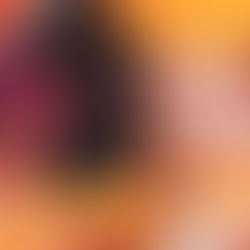ART HOODIES THAT BRING HEALING BY SAMURAI-FARAI
- Supplied

- Oct 7, 2021
- 3 min read

October 10th is World Mental Health Day and it is more relevant now than ever before, which is why local rising star and fine artist Farai Engelbrecht AKA Samurai-Farai, who has personally faced and overcome struggles with mental health conditions, has partnered with Reynold Agge, founder of ASA Magazine and Loskop - an all-female owned clothing and apparel brand, and put the spotlight on this growing, devastating issue. The collaboration will launch limited edition printed hoodies for sale to the public via the ASA website, showcasing one-of-a-kind artwork by Samurai-Farai and proceeds will be donated to SADAG (South African Depression and Anxiety Group). The campaign’s secondary objective is to foster a healthy and constructive dialogue. South Africans are urged to share their experiences about their own and loved ones' struggles with mental health in order to remind the nation that nobody is alone and through the spirit of Ubuntu we can be here to offer each other support.
Farai, an authentic and vibrant 25 year old fine artist, has rapidly been making a name for himself in Cape Town’s arts and culture circles. He has been able to create captivating work and draws inspiration from his humble, yet colourful upbringing. Raised by his single Afrikaans mother, following the passing of his Zimbabwean father at a young age, Farai has been using his diverse, rainbow heritage to create bold, spirited artwork which he has creatively implemented as a healing tool for his own troubled and tortured periods in his life. Farai is no stranger to the struggles of dealing with crippling mental health issues and he’s become a true illustration of what anyone can achieve by perseverance, dedication and the pursuit of joy and purpose through art.

Born in Rustenburg, he finally found his fit in the vibey, street art filled surroundings of Cape Town when he was offered a full bursary to study fine art. After completing his studies through Michaelis School of Fine Art, he set out to discover who he really was as a creative and found a new identity which he felt he had true authority over. And so his pseudonym, Samurai-Farai was born, which he sees as a separate entity entirely to Farai Engelbrecht.
On his cubist work, Farai notes that his artwork “intends on reflecting the many emotional states one being can possess.” His characters/figures are not fictitious, “they are you and me - thus making them relatable,” he explains. Farai’s work is psychological portraiture - “of myself, society and of the viewer”. He has an unimpeded understanding of the importance of street art and how it can transcend boundaries into the fine arts world, much like the artists he finds himself influenced by like Jean Michel Basquait and Retna.
According to Farai, in his more recent work, his primary focus has been around “body language and the notions of mental health as well as morality.” The Covid pandemic sparked a curiosity around the emotional, physical and mental toll and how our bodies have communicated the isolation and anxiety through images instead of words.
Farai’s recent body of work aims to narrate a personal and collective experience of isolation, despair, happiness and hopefulness. “Through the figurative and sometimes abstract expressions of the body, I hope to provoke thoughts or imaginations of the body as an archive, a library of emotion that can be read & interpreted in endless ways.”
Farai explains further, “In this case, a lot of the characters/people/personalities that I describe are hiding their emotional versions behind facades and masquerades. All of the subliminal or subconscious identities are the ones who are most vulnerable, the most sensitive. They are the ones that have gone through the most pain and the most trauma. I think what my characters are always hiding / or portraying are a similar facade - one that we portray as people. We portray ourselves as ‘put together’ - stable. We make up this front and we create this wall for the world that we want them to perceive. We make up this version of ourselves that we want other people to consume and it makes us feel better about ourselves but it isn’t really us. It’s not even an extension of ourselves. It’s merely a protective layer.”
“We are collaborating with the intention of using our creativity and expression as separate entities to create mindfulness and awareness surrounding mental health. We want to create mindfulness within our community about mental health, suicide, anxiety and depression,” concludes Farai.
Buy your hoodie online at https://asa-mag.com/faceyourfacade




































































































Comments